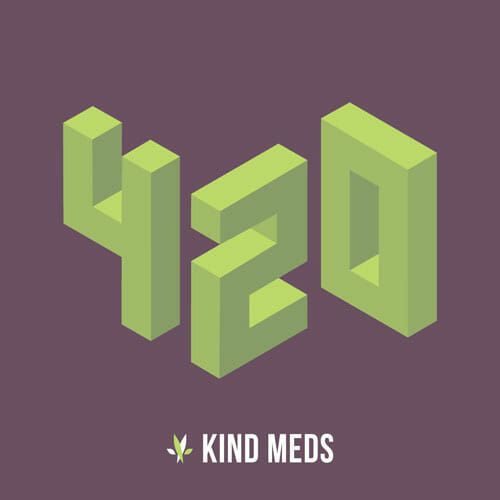Can Cannabis Help Curb Alcohol Use?
Written by Chris Weatherall on Jun 10, 2021
Every April is Alcohol Awareness Month. The aim is to build public awareness on the effects of chronic alcohol use towards mind and body.
An estimated 16 million people across America suffer from alcohol use disorder or AUD.
While residential treatment is a well-known option for many, perhaps this month is the perfect time to discover how the use of another alternative can keep people away from alcohol.
People use cannabis to treat many common medical ailments and mental health issues. This includes diabetes, glaucoma, anxiety, depression, ADD, and ADHD. And, since addiction is a disease, it falls in the same category for possible treatment. Marijuana has proven to be an effective deterrent for people wishing to replace alcohol with something less harmful. In some cases, cannabis has actually shown to be more effective than traditional addiction treatment.
Wondering…
What is Alcohol Awareness Month? How does medical cannabis work to prevent alcohol use? Does it work for everyone?
Consider this brief guide to using cannabis as an alcohol deterrent for the answers to these questions and more.
What Is Alcohol Awareness Month?
Founded in 1987 by the National Council on Alcoholism and Drug Dependence, or NCADD, Alcohol Awareness Month was primarily established to reduce the stigma faced by those suffering from alcohol dependence and alcohol use disorder.
Further, the month-long event encourages community organizations and community members to participate in activities designed to help them reach out to those with alcohol addiction in the community. In return, alcohol-related organizations provide the communities with:
- reliable information about alcohol itself
- the condition of alcohol addiction
- the process of recovery
Primarily, NCADD desires to inform the public about the nature of alcoholism.
Alcoholism is a disease, influenced by a person’s genetics. Further, it is a chronic disease that can grow progressively more severe if left unchecked.

Ultimately, alcoholism can result in the following diseases which can lead to increase mortality:
- liver failure
- liver disease
- kidney failure
- kidney disease
- heart conditions
- diabetes
- brain injury
However, there is hope for recovery.
As many as 20 million adults in the United States are living in the various stages of recovery every day. Although recovery is a lifelong process, those addicted to alcohol can achieve a recovery by successfully refraining from alcohol use. In this situation, many of the negative effects alcohol has on the body can potentially be reduced.
“Help for Today, Hope For Tomorrow”
In keeping with the 2019 Alcohol Awareness Month theme, “Help for Today, Hope for Tomorrow,” NCADD focused on interaction with community organizations to promote better understanding of the prevention and treatment of alcoholism. The organizations continues to promote community events and activities geared towards awareness. They also help ensure individuals are encouraged to seek treatment and help for their alcohol addiction.
One of the signature events at the beginning of Alcohol Awareness Month every year is the Alcohol-Free Weekend. This is celebrated the first weekend of the month. During this weekend, designed to showcase just how much alcohol may be affecting you and your family, all Americans are encouraged to abstain from alcohol. However, if you do have an alcohol dependence you must do so with the advice of your physician.
Most treatment options include the ultimate goal of abstaining from alcohol use. However, alcohol is a dangerous substance to withdraw from without medical attention or medication assisted treatment (MAT). While traditional treatment methods include attending group meetings, inpatient treatment centers, and outpatient treatment programs, most supervised by medical professionals, April is the perfect month to discuss yet another option for scaling back and eventually eliminating alcohol use.
How Can Cannabis Help Curb Alcohol Use?
Whether you’ve participated in an alcohol-free weekend or want to cease drinking alcohol indefinitely, marijuana may provide you with the boost you need to continue to abstain. Most Americans suffering alcohol addiction need this “boost” for continued sobriety. In fact, just over half of all people who begin a treatment program relapse before the first six months are up.
The prospects are worse for those who intend to quit drinking on their own. Many cite the side effects of withdrawal as the number one reason for returning to alcohol.
In an effort to damper the effects of alcohol withdrawal, physicians often prescribe benzodiazepines. Unfortunately, these drugs may themselves prove addictive. Thus, compounding an already serious addiction problem. The problem remains two-sided, then – how do you refrain from consuming alcohol and reduce cravings, while avoiding addiction to another substance?
Cannabis proponents suggest utilizing cannabis to curb the urge to drink on a one-to-one basis. Simply put, when you find yourself feeling the urge to drink alcohol, either smoke or ingest cannabis instead. This procedure, known as Marijuana Maintenance, has multiple effects on the mechanisms of addiction.
Effects of Marijuana For Mental Health
First, the actual use of cannabis at the time a craving for alcohol hits allows the user to continue to take action to fulfill the craving. Although you are not drinking, you are still ingesting something to ease the craving, which may provide satisfaction unfulfilled by pharmaceutical medication.
Second, the feelings of the cravings themselves may be curbed by the effects of the cannabis, which may reduce future cravings by acting in the same way as benzodiazepines.
Finally, the calming psychological effects of medical cannabis have been proven to address symptoms of PTSD, anxiety, depression, and other stressors that may lead to alcohol use in the first place.
Mild relief of these conditions may be what you were seeking when you began to drink. Cannabis aids in this relief without producing the side effects or addictive properties of pharmaceutical medications.
Who Should Use Cannabis As An Alcohol Deterrent?
If you live in a state where cannabis is legal, you may be able to purchase cannabis to alleviate the symptoms of alcohol withdrawal.
As always, tapering off alcohol use is much safer than simply ceasing use cold turkey. The medical risks of abrupt stoppage are many. However, alcohol use reduction tempered by cannabis may be a safer alternative to pharmaceuticals as well as cold turkey.
It is important that you speak with your physician about the specific characteristics of your alcohol use, and whether you may benefit from a cannabis regimen.
Refer to Our Strain Guide for More Info
*Note from the editor: this post was originally shared on 12/13/19 and has been updated and republished on 6/12/21.







